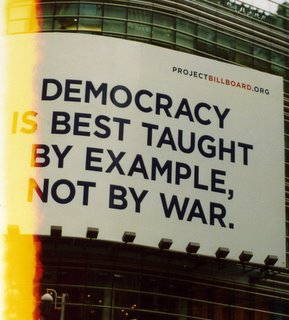Blowjob Philosophy
Preface
I know what you’re thinking. I know precisely what you’re thinking my dear cultivated readers. You’re thinking: “This is it, last time I ever come here and read out what this degenerate wancker (who by the way is not getting any) has to say. Fuck him”, you’re thinking, and your immediate response is to turn back at once, faster than you can spell B-L-O-W J-O-B – never mind the Philosophy.
That taken out of the way, and although you’re almost completely spot on in your initial assumptions, I mean, I am, 110 percent degenerate, (there’s no denying it) ; I’m a wancker (but then again show me a man who claims not to be and I’ll show you either a eunuch or a liar); and I’m not getting any (who can blame me, after all, since my wife past away, I’ve only got one night stands to show for it, and as any shy person knows, you just don’t ask your partner to go down on you in your first and last fuck); but, I do, however, have something to say that might just as well be worth your time, dear XXI Century reader.
Let me assure you then, what you are about to read is a grave dissertation written on the apex of years and years continuously devoted to the task of applying Reason – reasonable argumentation – to the empirical study of the blowjob phenomena.
PS- After all, it’s only been a couple of months since my wife and her lesbian lover died. (Natural causes, so it reads)
A) First Thesis
A further understanding of the blowjob phenomena is quintessential to a further understanding of Human Kind and the ways by which Human Kind can attain happiness.
A.1) Terminological clarification
What do we exactly mean when we apply the composed word Blowjob? The word itself is strange and in want of enlightenment.
George Carlin says it’s actually a stupid word. The word blowjob is a euphemism – in his view. Carlin brings to light the incoherence of the physical and psychological act itself – and its written (spoken) representation.
In my view, Carlin is partially right. You don’t blow on a cock; you suck it, you lick it, you tease it, but you don’t blow on it; the word blowjob is plain and obviously stupid, and, what’s more, the subject of your blown up caresses might even get provoked into pneumonia or, what is worse, a virus. (Some scholars disagree with the last statement and I’m forced to concur: it’s been empirically proven that the probability of contracting AIDS from a blowjob is minimal).
Thus, for the sake of coherence and method, I shall refer to the blowjob as the Suckjob. The process by which man derives ultimate satisfaction, and love for woman sometimes arises.
Of course, there’s more involved in a blowjob, than mere sucking. Nevertheless, my distinction offers two advantages: firstly, 90 per cent of a good blowjob has to do with a good sucking; secondly, 90 per cent of its antonym has to do with a good licking. To be blunt and straight to the business at hand:
You suck cock
You lick pussy.
The terminological conclusion being, this essay will discuss the benefits of both the suckjob and the lickjob, combined, if you’d like to be euphemistical, in a Blowjob Philosophy.
B) Second Thesis
No human being will ever experience true intimate pleasure and complete peace of mind in life, unless the experience of a phenomenal blowjob (as clarified above) is
felt by the individual beings themselves; blowjobs are fundamental to the happiness and peace among human beings.
Do you know that story your parents told you about the prince and princess living happy ever after? Do you know why they were so happy ever after? (Please, don’t say ‘cause they were into blowjobs, or sixty-nines for that matter, even if you’re bright enough to know better).
Really, you don’t know why they were happy ever after, or do you?
One of the reasons that usually everybody tends to forget (the fate of all simple conclusions) – was ‘cause they were INTIMATE ever after.
B1) Terminological clarification
What does it mean to be intimate with someone? Tolstoy thinks of intimacy as a quality that belongs to those who are extremely close in a given period of their short life span, the case-study example in most of Tolstoi’s writings being the closeness between brother and sister.
I humbly disagree with Tolstoi. To put it bluntly, I love my sis and we’re intimate but there’s no absolute intimacy between us, ‘cause we don’t have sex, nor do we wish to have sex, primarily because we do not wish to destroy that fundamental parental link that binds us together.
Intimacy has to do with sex. Blowjobs have to do with sex, too.
The terminological conclusion is: INTIMACY is a state of life where an entity beyond, (one could think of Kant’s famous “hidden Nature’s intention”) is more powerful than you alone will ever be. Intimacy belongs to the realm of Philosophy, in the sense that it overlaps it; Intimacy is, strictly speaking, the action of belonging unconditionally to someone else, who in turn and unconditionally belongs to you too. Intimacy is pure carnal love.
C) Third thesis
There’s nothing more intimate than performing oral sex to your loved one.
C1) Terminological clarification
What does it mean to say that this or that person is “the loved one?” It is a matter of the greatest importance, since everybody in the world is on the look out for this particular goal, either you believe it or not.
The “loved one”, from Homer to Shakespeare, from Hamlet to Ulysses, has always been with us, in a subtle manner; it has been the leit-motif within the leit-motif of Human Kind’s history.
To discuss it is fairly like walking trough kick sand, but I’ll give it a go anyways; my past readings have thought me, no matter how much prejudice will guide us in this quest, such matter is not a simple matter at all.
To be intimate with a fellow lover, is to feel one’s boundaries under the shelter of one’s companion, is to be multiple as father is to mother and daughter is to great-great grand-mother without the existing parental relations; it is love in its most fabulous exuberance.
I believe the first writer to digress on the “loved one” was A. Camus.
Camus reconnected the debate when he reminded us of our basic loneliness – we are born alone and we die alone. It was him, who defined it in a more suitable fashion than most writers will ever do. The universal history of “the loved one” would be a mystical experience that would allow Human kind survival, by a method of falling in love.
In Camus view, the loved one is “the person whose footsteps are equally balanced with your own”, the loved one is the person who gives sense to existence; the loved one, alas, is the person who knows you better than you know yourself.
………………………………….
And so folks, before you go away with nothing but doubts in your minds, do yourselves a favour; when you get home tonight, embrace your intimate others and –
GET DOWN ON IT.

















































